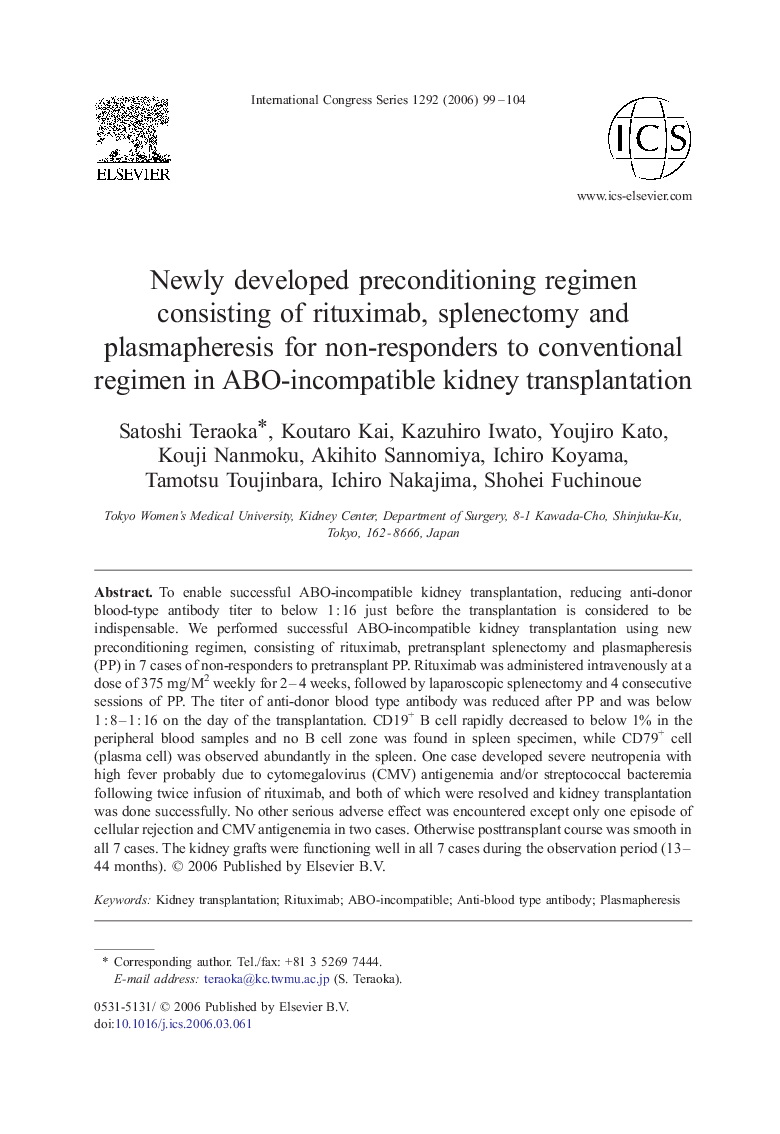| Article ID | Journal | Published Year | Pages | File Type |
|---|---|---|---|---|
| 2577135 | International Congress Series | 2006 | 6 Pages |
To enable successful ABO-incompatible kidney transplantation, reducing anti-donor blood-type antibody titer to below 1 : 16 just before the transplantation is considered to be indispensable. We performed successful ABO-incompatible kidney transplantation using new preconditioning regimen, consisting of rituximab, pretransplant splenectomy and plasmapheresis (PP) in 7 cases of non-responders to pretransplant PP. Rituximab was administered intravenously at a dose of 375 mg/M2 weekly for 2–4 weeks, followed by laparoscopic splenectomy and 4 consecutive sessions of PP. The titer of anti-donor blood type antibody was reduced after PP and was below 1 : 8–1 : 16 on the day of the transplantation. CD19+ B cell rapidly decreased to below 1% in the peripheral blood samples and no B cell zone was found in spleen specimen, while CD79+ cell (plasma cell) was observed abundantly in the spleen. One case developed severe neutropenia with high fever probably due to cytomegalovirus (CMV) antigenemia and/or streptococcal bacteremia following twice infusion of rituximab, and both of which were resolved and kidney transplantation was done successfully. No other serious adverse effect was encountered except only one episode of cellular rejection and CMV antigenemia in two cases. Otherwise posttransplant course was smooth in all 7 cases. The kidney grafts were functioning well in all 7 cases during the observation period (13–44 months).
